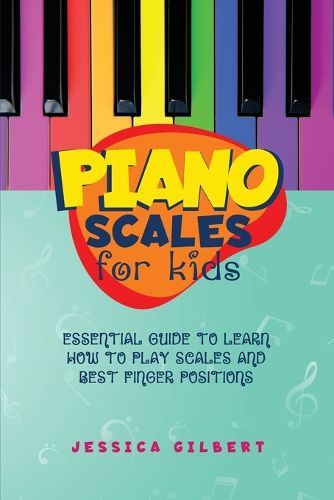Readings Newsletter
Become a Readings Member to make your shopping experience even easier.
Sign in or sign up for free!
You’re not far away from qualifying for FREE standard shipping within Australia
You’ve qualified for FREE standard shipping within Australia
The cart is loading…






This title is printed to order. This book may have been self-published. If so, we cannot guarantee the quality of the content. In the main most books will have gone through the editing process however some may not. We therefore suggest that you be aware of this before ordering this book. If in doubt check either the author or publisher’s details as we are unable to accept any returns unless they are faulty. Please contact us if you have any questions.
The piano is a longstanding, classical, and revered instrument. Invented in the 1700s by Bartolomeo Cristofori (1655-1731) of Padua, Italy, with plenty of hammers and planters to boot, the piano came to be quite popular in the homes of many a Western brood by the end of the nineteenth century. When someone thinks of a classical composer, it wouldn't be unusual to go to Bach, Beethoven, and the like and easily associate them with piano. Many believe that piano sets the standard for musicians, laying the foundation for instrumental affinity. What does that mean, exactly? The piano is awesome. But you knew that already. Yet, what makes a good pianist great? What are the tools used to get you from here to there? While playing is, of course, supposed to be fun, sometimes a bit of direction is what we need to get to the next level.
The basic keyboard, housing case, lid, pedals, keys, hammers, and strings still make up the majority of the modern piano's design and componentry. This piano has withstood the test of time and largely remained intact, with the exception of electric keyboards and some piano types.
$9.00 standard shipping within Australia
FREE standard shipping within Australia for orders over $100.00
Express & International shipping calculated at checkout
This title is printed to order. This book may have been self-published. If so, we cannot guarantee the quality of the content. In the main most books will have gone through the editing process however some may not. We therefore suggest that you be aware of this before ordering this book. If in doubt check either the author or publisher’s details as we are unable to accept any returns unless they are faulty. Please contact us if you have any questions.
The piano is a longstanding, classical, and revered instrument. Invented in the 1700s by Bartolomeo Cristofori (1655-1731) of Padua, Italy, with plenty of hammers and planters to boot, the piano came to be quite popular in the homes of many a Western brood by the end of the nineteenth century. When someone thinks of a classical composer, it wouldn't be unusual to go to Bach, Beethoven, and the like and easily associate them with piano. Many believe that piano sets the standard for musicians, laying the foundation for instrumental affinity. What does that mean, exactly? The piano is awesome. But you knew that already. Yet, what makes a good pianist great? What are the tools used to get you from here to there? While playing is, of course, supposed to be fun, sometimes a bit of direction is what we need to get to the next level.
The basic keyboard, housing case, lid, pedals, keys, hammers, and strings still make up the majority of the modern piano's design and componentry. This piano has withstood the test of time and largely remained intact, with the exception of electric keyboards and some piano types.